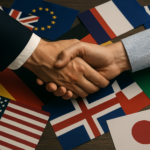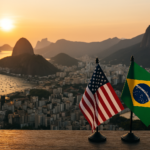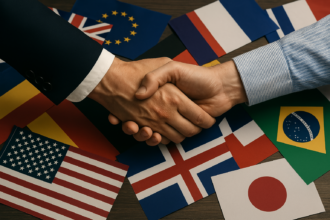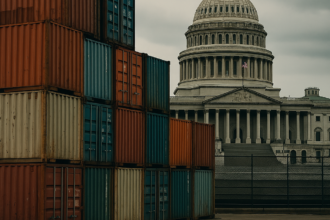The global landscape is changing. Promises of stable and peaceful globalization are being replaced by tariffs, sanctions and bilateral agreements that often concentrate power and weaken economic freedom.
In this series, the Power & Market analyzed this phenomenon in light of the classical liberal and libertarian tradition, based on the principles of Austrian School and of the Public Choice Theory.
Check out the articles in the series:
1. The return of commercial dirigisme: deglobalization or renationalization?
The so-called deglobalization is not a natural market movement, but a deliberate action by governments to regain control of international exchanges.
👉 Read the full post
2. Bilateralism is not freedom: agreements between states are no substitute for the free market
Replacing multilateralism with agreements between states does not represent decentralization. It represents more political bargaining and less spontaneous competition.
👉 Read the full post
3. Free trade is not between countries — it is between people
Trade is a voluntary relationship between individuals, not a negotiation between bureaucracies. Defending the market is defending the sovereignty of the citizen over the State.
👉 Read the full post
What's at stake
The new global order is being shaped not by market forces, but by centralizing political decisions. Tariffs, subsidies and protectionism are sold as “defending sovereignty”, but in practice they limit freedom, raise prices and create state privileges.
The Austrian School teaches us that spontaneous market order is more efficient, fairer and freer than any top-down imposed planning.
Conclusion
Deglobalization and bilateralism are modern expressions of an old problem: the belief that the government knows what is best for everyone.
But true trade—the kind that creates wealth, reduces conflict, and expands cooperation—has always been made by people, not nations.
And that's why when we talk about economic freedom, there is no substitute for the free market.





